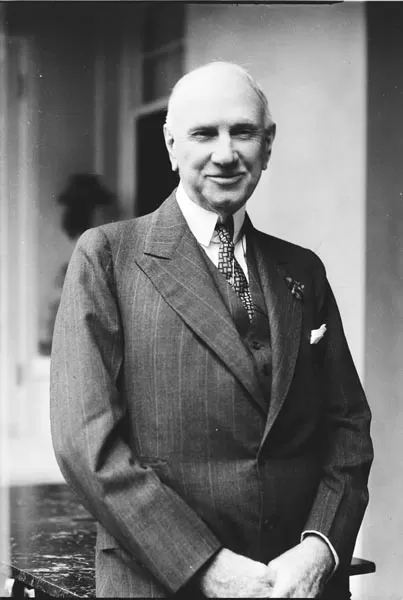Edward Riley “E. R.” Bradley (1859-1946) was born in Johnstown, Pennsylvania, the oldest child of Hugh Bradley, an Irish steelworker, and Mary “Mollie” Riley.At fourteen, his adventurous spirit led him to the Southwest, where he tried living as a cowboy, gold miner, and, he later claimed, a government scout. Although his military service is unproven, Bradley was known around Palm Beach as “the Colonel.”During his travels, Bradley developed an affinity for gambling and horse racing. As he moved back through the Midwest, he opened casinos and hotels and married Agnes Cecelia Curry in St. Louis. Their marriage was not a happy one, and they remained childless.
In 1891, the Bradleys wintered in St. Augustine, where Henry Flagler was building his railroads, hotels, and land empire. Edward and his brother John opened the Bacchus Club in St. Augustine and in 1898 moved to Palm Beach, where they built the Beach Club, a private dinner club and casino that was to become the longest-operating illegal gambling establishment in the United States.
Although authorities tried to catch Bradley breaking state gambling laws, he knew of impending raids. Special removable gaming tables were constructed to be quickly hidden, revealing only patrons drinking tea—his circle of friends virtually controlled politics in Palm Beach. For a time Bradley also controlled the local media, with his ownership of The Palm Beach Post and Palm Beach Times, and part interest in the Palm Beach Daily News. Bradley also owned two smaller clubs in Palm Beach. He donated one of the properties to a Catholic medical research organization; the Society of the Four Arts purchased the other.
In attracting celebrities to the exclusive world he created, Bradley became a celebrity himself. Yet he led a private life outside the casino, which invited exaggeration and speculation. Judge James Knott asked, “What manner of man was this, who could maintain an unlawful, hugely successful, known gambling establishment for almost half a century in the face of disapproval by large segments of the publicóand preserve a reputation as a kind of half-saint?”
The casino allowed him to maintain his beloved but unprofitable Idle Hour horse farm in Kentucky and to give generously to those in need. Stories abound of his gifts to individuals, such as ordering coal for a woman who complained of the winter cold. He provided the first building funds for Good Samaritan and St. Mary’s hospitals. During the run on local banks in the Bust of the late 1920s, he kept some from failing by making substantial deposits.
A devout Catholic, in 1926 Bradley contributed most of the cost to build the first Catholic church in Palm Beach, St. Edward’s. But he made gifts to other denominations, including an organ for the Methodist church in West Palm Beach, and he donated lakefront property to build St. Ann Catholic Church. After the 1928 hurricane, he contributed to the American Red Cross, and to rebuilding local churches and the original West Palm Beach Country Club. During the Great Depression, his money helped to keep the county’s schools from closing.
He died at the Idle Hour Farm in 1946. He is buried in Lexington next to his wife, who died in 1926 in the China Sea, during an around-the-world cruise with friends. He left a seven-million-dollar estate. As stipulated in Bradley’s will, the Beach Club was razed and the land was given to the Town of Palm Beach for a park, which is named Bradley Park. Another stipulation, that the gaming tables be thrown into the sea, was not entirely enforced. A roulette wheel, dice table, cards, dice, and poker chips are part of the Historical Society’s collection.


